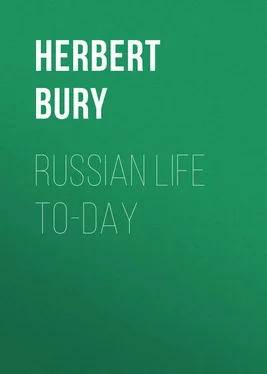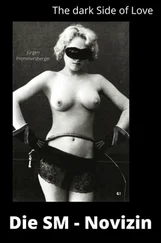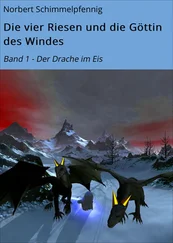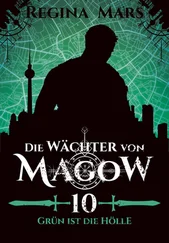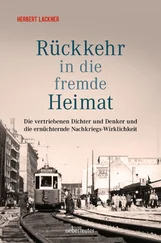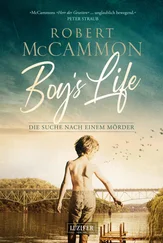Herbert Bury - Russian Life To-day
Здесь есть возможность читать онлайн «Herbert Bury - Russian Life To-day» — ознакомительный отрывок электронной книги совершенно бесплатно, а после прочтения отрывка купить полную версию. В некоторых случаях можно слушать аудио, скачать через торрент в формате fb2 и присутствует краткое содержание. ISBN: , Жанр: foreign_antique, foreign_prose, на английском языке. Описание произведения, (предисловие) а так же отзывы посетителей доступны на портале библиотеки ЛибКат.
- Название:Russian Life To-day
- Автор:
- Жанр:
- Год:неизвестен
- ISBN:http://www.gutenberg.org/ebooks/33303
- Рейтинг книги:5 / 5. Голосов: 1
-
Избранное:Добавить в избранное
- Отзывы:
-
Ваша оценка:
- 100
- 1
- 2
- 3
- 4
- 5
Russian Life To-day: краткое содержание, описание и аннотация
Предлагаем к чтению аннотацию, описание, краткое содержание или предисловие (зависит от того, что написал сам автор книги «Russian Life To-day»). Если вы не нашли необходимую информацию о книге — напишите в комментариях, мы постараемся отыскать её.
Russian Life To-day — читать онлайн ознакомительный отрывок
Ниже представлен текст книги, разбитый по страницам. Система сохранения места последней прочитанной страницы, позволяет с удобством читать онлайн бесплатно книгу «Russian Life To-day», без необходимости каждый раз заново искать на чём Вы остановились. Поставьте закладку, и сможете в любой момент перейти на страницу, на которой закончили чтение.
Интервал:
Закладка:
The country house, or datcha , is a necessity for those who have to live in Russia all the year round, as the cities and great towns are very hot and dusty, and often full of mosquitoes in the two or three months of summer, which is quite tropical in its character.
Thus there are the two extremes, an Arctic winter and a tropical summer.
The country houses are entirely summer residences, with great verandahs and balconies and other facilities for life in the open, and are often placed amongst pine-woods or by the sea. Some of my friends use their datchas in winter also; and it is interesting to see how balconies and verandahs which in summer are filled with carpets, furniture, and plants, and are quite open on every side to meet the needs of the family and its guests all through the day in the open air, in winter are closed in by double windows fitted in on every side, and thus are made into additional and altogether different rooms.
The homes of the Russian nobility are very richly and artistically appointed in every particular. I stayed with friends a couple of years ago who had taken such an establishment for the summer; and furniture, pictures, china, arrangements and decorations of rooms all gave striking testimony to the wealth and cultivated tastes of the absent family. Even beyond the Urals, at the Kyshtim Mine, when first I visited it and was the guest of the managing director, I was amazed at the sumptuous character of his abode built by the former owners of the mine.
It is a vast building approached by a great courtyard and in the Greek style of architecture, with towers in different places giving it a fortress-like appearance in the distance. The rooms are extraordinarily large and numerous, and here and there are bits of Venetian furniture, old paintings, and rich carpets. On going straight through the great salon, which one enters from the outer door and into the open air on the other side, one is again under a great portico with Greek pillars, capitals, and frieze, looking out over a large sheet of water towards hills and forests. I could not help saying to myself in amazement the first time I went there, “And this is Siberia!”
I am not at all sure that social life upon European lines will not develop more rapidly in Siberia than in European Russia. Even now I do not know any railway station in Russia proper that can compare with that of Ekaterinburg, just where Siberia really begins, in all its arrangements for the travelling public and especially in the equipment of its restaurant and dining-rooms, where every comfort in the way of good food and good service is provided for the traveller, and French and German are freely spoken.
It is impossible to write on the general social life without mentioning, though one cannot do more, certain recent events which must have a tremendous influence upon Russia’s future, socially as well as nationally. There is, for instance, the Emperor’s proclamation against the vodka monopoly hitherto enjoyed by the government, which prohibits State vodka selling for ever. The effect upon the public life of the great cities has been astonishing already. No one could have believed that the “stroke of a pen,” so to speak, could have wrought such a change in the habits of a people. It remains to be seen, of course, how long the change will last; but, though Acts of Parliament cannot make people sober, it is a grand step in the right direction to decide that they shall not make them drunk, as the encouragement given by the State to the sale of vodka must certainly have done.
Could any other modern government have made a sacrifice such as Russia has made in giving up the expectation of nearly £100,000,000 of revenue for the social well-being of her people? Truly she deals with “large spaces!”
Moreover, the vodka proclamation comes in the natural course of things, and can have been but very little hurried by the war; for things were already moving in that direction. Last year but one – 1913 – a scheme of “local option” was introduced into the empire; and, in every commune within its boundaries, I am assured, men and women alike having the vote for the purpose, the inhabitants were allowed to decide for themselves whether they would allow vodka to be sold in their villages and towns. It was recognized that if the men enjoyed getting drunk the wives and mothers were the sufferers, and so they were allowed to vote.
The whole country, therefore, before the war broke out, was prepared to face a great issue. And the general war cry, “We’ve a greater foe to fight than the Germans!” shows how they faced it, and gives them that ideal which should enable them to go far. They are out for a holy war, and far-reaching influences are clearly at work which will profoundly and permanently affect the whole social conditions and well-being of the people.
Then there is the proclamation concerning the resuscitation of Poland. This also does not come at all as an overwhelming surprise to many of us, as it has been fairly well known that the Emperor, and some at least of his principal advisers, have for some time had ever-increasing constitutional, even democratic, sympathies. It has been more and more felt of late that what is called Russification, as practised towards the Finns, would go no further; and indeed, as far as they were concerned, would be reversed. No thoughtful person who has marked the trend of events since 1908 could doubt the direction in which higher and responsible Russian thought was moving. But who can possibly foresee the far-reaching effect of raising up a great Polish nation once more and recognizing the Roman Catholic Church as the Church of that part of the empire, with Russians and Poles, Orthodox and Roman Catholic living together in amity and international unity?
“I have just been staying,” writes Mr. Stephen Graham in the Times for October 29, 1914, “in the fine old city of Wilna, a city of courtly Poles, the home of many of the old noble families of Poland. It is now thronged with Russian officers and soldiers. Along the main street is an incessant procession of troops, and as you look down you see vistas of bayonet-spikes waving like reeds in a wind. As you lie in bed at night you listen to the tramp, tramp, tramp of soldiers. Or you look out of the window and see wagons and guns passing for twenty minutes on end, or you see prancing over the cobbles and the mud the Cossacks of the Don, of the Volga, of Seven Rivers. In the days of the revolutionary outburst the Poles bit their lips in hate at the sight of the Russian soldiers, they cursed under their breath, darted out with revolvers, shot, and aimed bombs. To-day they smile, tears run down their cheeks; they even cheer. Whoever would have thought to see the day when the Poles would cheer the Russian troops marching through the streets of their own cities? The Russians are forgiven!”
No one who has known Russia and Poland before the war could read this description without deep emotion.
“A very touching spectacle,” he continues, “may be seen every day just now at the Sacred Gate of Wilna. Above the gateway is a chapel with wide-open doors showing a richly-gilded and flower-decked image of the Virgin. At one side stands a row of leaden organ-pipes, at the other stands a priest. Music is wafted through the air with incense and the sound of prayers. Down below in the narrow, muddy roadway kneel many poor men and women with prayer-books in their hands. They are Poles. But through the gateway come incessantly, all day and all night, Russian troops going to the front. And every soldier or officer as he comes lifts his hat and passes through the praying throng uncovered. This is beautiful. Let Russia always be so in the presence of the Mother of Poland.”
It is impossible to read of that scene also, and recall at the same time past relations of the two Churches here mentioned, without dreaming dreams and seeing visions of social unity such as has never yet been known, both for Russia and all other countries to which she has so nobly and unselfishly given a social lead and invitation to follow on.
Читать дальшеИнтервал:
Закладка:
Похожие книги на «Russian Life To-day»
Представляем Вашему вниманию похожие книги на «Russian Life To-day» списком для выбора. Мы отобрали схожую по названию и смыслу литературу в надежде предоставить читателям больше вариантов отыскать новые, интересные, ещё непрочитанные произведения.
Обсуждение, отзывы о книге «Russian Life To-day» и просто собственные мнения читателей. Оставьте ваши комментарии, напишите, что Вы думаете о произведении, его смысле или главных героях. Укажите что конкретно понравилось, а что нет, и почему Вы так считаете.
